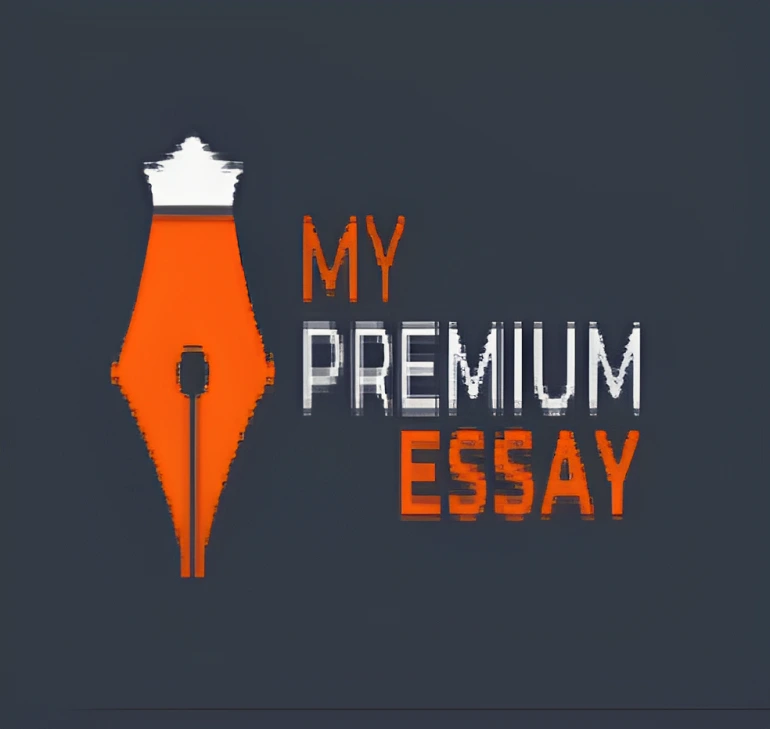Imagine you're listening to a powerful speech that resonates deeply, leaving you moved and persuaded. What is it about the speaker's words that captivate and convince? This is the art of rhetoric at work. Rhetoric, the ancient art of persuasion, plays a crucial role in shaping our perception and understanding of the world through language. This art form is not just confined to speeches; it permeates academic writing and real-world communication, particularly in rhetorical essays.
Rhetorical essays are a staple in academic circles, often used to analyze and understand how authors or speakers use language to influence their audience. These essays delve into the strategic use of rhetorical devices—such as ethos, pathos, and logos—to craft arguments that are not only convincing but also intellectually stimulating. The essence of a rhetorical essay lies in its ability to dissect and interpret the nuances of persuasion, offering insights into the effectiveness and impact of various communication strategies.

The purpose of a rhetorical essay goes beyond mere analysis; it aims to uncover the deeper intentions behind a piece of writing or speech and evaluate its effectiveness in swaying its audience.
In our blog post first we will discuss the process of pinpointing the ideal rhetorical essay topic. Following this, we present a comprehensive list of thought-provoking topics.
Identifying Rhetorical Essay Topics
Identifying engaging and relevant topics is a critical first step in writing a rhetorical essay. A well-chosen topic not only makes the essay more interesting to write but also more compelling to read. Here are some strategies to help you find the perfect topic for your rhetorical essay:
-
1 Explore Current Events: The world of news and media is ripe with topics for rhetorical analysis. Look for speeches, opinion pieces, or social media campaigns that have made an impact or sparked debate. Analyzing how these pieces persuade their audience can provide valuable insights into contemporary rhetorical strategies.
-
2 Delve into Social Issues: Social issues, whether they are about politics, environmental concerns, human rights, or cultural phenomena, often involve persuasive arguments. Analyzing the rhetoric used in discussions around these issues can reveal much about how language shapes our understanding of these important topics.
-
3 Reflect on Personal Experiences: Sometimes the most compelling essays come from personal experience. Consider events or conversations in your own life where persuasive language plays a key role. Analyzing these instances can provide a unique and intimate perspective on rhetoric.
-
4 Revisit Historical Events: History is filled with influential speeches, documents, and writings. Select a historical event and analyze the rhetorical strategies used by leaders, activists, or writers of that time. This not only offers a chance to learn about history but also to understand how rhetorical strategies have evolved over time.
-
5 Brainstorming Techniques:
-
Mind Mapping: Start with a broad category like 'politics' or 'media' and create a mind map of related topics, narrowing down to more specific areas of interest.
-
Freewriting: Set a timer for a few minutes and write continuously about potential topics that interest you. This unfiltered process can often lead to surprising and innovative ideas.
-
Reading and Research: Sometimes, simply reading widely or browsing through news sites, blogs, or journals can spark an idea for a rhetorical essay topic.
-
Discussion with Peers: Talking with others about current issues or interests can often lead to the discovery of a great topic. Different perspectives can also enrich your understanding of a potential subject.
-
Remember, the key to a successful rhetorical essay is not just in the analysis but also in choosing a topic that is both interesting to you and engaging for your audience. Take the time to explore various avenues and choose a topic that you are passionate about and that also offers rich opportunities for rhetorical analysis.
Read More: Why Does Academic Writing Require Strict Formatting?
A Comprehensive Rhetorical Essay Topics List
A. Current Topics for Rhetorical Essay
Choosing a current topic for your rhetorical essay can make your work more engaging and relevant. Here are some contemporary topics, each presenting unique opportunities for rhetorical analysis:
-
COVID-19 Pandemic Communication
-
Climate Change Activism
-
Black Lives Matter Movement
-
The Rise of Cryptocurrencies
-
Election Campaigns
-
Misinformation and Social Media
-
Women's Rights and Feminism
-
Tech Giants and Privacy Concerns
-
Mental Health Awareness Campaigns
-
The Impact of Artificial Intelligence
-
Gender and power in Jane Austen’s “Pride and Prejudice”
-
How the media shapes public perception of political events.
-
The representation of power dynamics in “The Godfather”
-
The role of music in the movie “Pulp Fiction”
-
The use of silence in “The Silence of the Lambs”
-
The representation of race in the movie “12 Years a Slave”
-
The Rhetoric of Space Exploration
-
The Persuasive Strategies in Veganism and Animal Rights Campaigns
-
The Rhetorical Framing of the Gig Economy
-
Rhetoric in the Debate Over Net Neutrality
-
The Impact of Influencer Marketing on Consumer Behavior
-
The Language of Cybersecurity and Data Breach Announcements
-
Rhetoric in the Anti-Vaccination Movement
-
Persuasive Language in Sustainable Fashion Campaigns
-
Rhetorical Analysis of Body Positivity Campaigns
-
Language and Imagery in Refugee Advocacy
B. Literature Topics for Rhetorical Essay
Literature offers a rich field for rhetorical analysis, as authors skillfully use language to convey themes, emotions, and perspectives. Here are some engaging topics for a rhetorical analysis essay focusing on literature:
-
1 Shakespeare's Use of Persuasion
-
2 Orwell's "1984" and the Rhetoric of Dystopia
-
3 The Rhetorical Power of Jane Austen
-
4 Poetry of War
-
5 The Great Gatsby's American Dream
-
6 Rhetoric in Modernist Literature
-
7 Harper Lee's "To Kill a Mockingbird"
-
8 Rhetorical Devices in Gothic Literature
-
9 Rhetorical Techniques in the Plays of Tennessee Williams
-
10 "Animal Farm" as Political Satire
-
11 Narrative Rhetoric in Autobiographies
-
12 Rhetoric and Identity in James Baldwin's Works
-
13 The Rhetoric of Feminism in Virginia Woolf's Writing
-
14 Symbolism and Rhetoric in Gabriel García Márquez's Magical Realism
-
15 Postcolonial Rhetoric in Chinua Achebe's "Things Fall Apart"
When selecting a literary work for your rhetorical analysis, consider both the richness of the text in terms of rhetorical devices and your own interest in the theme or author. A deep personal engagement with the text will often lead to a more insightful analysis.
Read More: How to Write An Argumentative Essay?
C. Visual Topics for Rhetorical Essay
Visual rhetoric, which involves analyzing how visual elements convey messages and persuade audiences, offers a fascinating angle for rhetorical essays. Here are several topics that focus on visual rhetoric:
-
Advertising Campaigns
-
Political Cartoons and Satire
-
Film and Cinematography
-
Iconic Photographs
-
Social Media Influencers
-
Street Art and Graffiti
-
Architecture as a Rhetorical Statement
-
Memes and Internet Culture
-
Public Service Announcements
-
Historical Propaganda Posters
-
Visual Rhetoric in Video Game Design
-
Rhetoric of Fashion and Clothing
-
Infographics as Tools of Persuasion
-
Visual Storytelling in Graphic Novels and Comics
-
The Rhetoric of Museum Exhibitions and Art Installations
When choosing a topic, consider the availability of visual material and ensure that it's rich enough to support a detailed analysis. Also, think about the context in which the visual material exists, as this can provide critical insights into its rhetorical impact.
D. Rhetorical Essay Topics for College Students
Choosing a topic for a rhetorical essay can be an exciting journey, as it allows college students to dive deep into various forms of communication and analyze their persuasive elements. Here are some engaging and thought-provoking rhetorical essay topics suitable for college students:
-
1 Analyzing Presidential Inaugural Addresses
-
2 The Rhetoric of Social Media Influencers
-
3 The Rhetoric of Student Activism
-
4 Social Media and Self-Image
-
5 Climate Change Advocacy Speeches
-
6 The Power of Advertising
-
7 Rhetoric in Martin Luther King Jr.'s "I Have a Dream"
-
8 Gender Equality in Political Rhetoric
-
9 The Persuasive Language of News Media
-
10 Rhetoric in TED Talks
-
11 The Rhetoric of Artificial Intelligence and Ethics in Tech Industry
-
12 Analyzing Legal Arguments in High-Profile Court Cases
-
13 The Rhetoric of Public Health Campaigns
-
14 The Rhetoric of Environmental Protests
-
15 The Persuasive Language of Corporate Social Responsibility Reports
-
16 Rhetoric in Modern Advertising Campaigns for Health and Fitness Products
-
17 The Role of Rhetoric in Influencing Public Opinion on Immigration
-
18 Rhetoric in Feminist Literature
-
19 The Use of Rhetoric in Music Lyrics Addressing Social Issues
-
20 Rhetorical Strategies in Anti-Smoking Campaigns
Each of these topics provides a rich ground for exploration, allowing students to hone their analytical skills and gain a deeper appreciation for the art of persuasion in various contexts.
In conclusion, exploring these rhetorical essay topics will not only enhance your analytical skills but also deepen your understanding of how language shapes our perception of the world. MyPremiumEssay is a professional essay writing service. At MyPremiumEssay, we encourage you to embrace these topics with curiosity and critical thinking, paving the way for insightful discussions and exceptional writing. Remember, the power of your essay lies in your ability to dissect and interpret the rhetoric that influences us every day. Happy writing!




